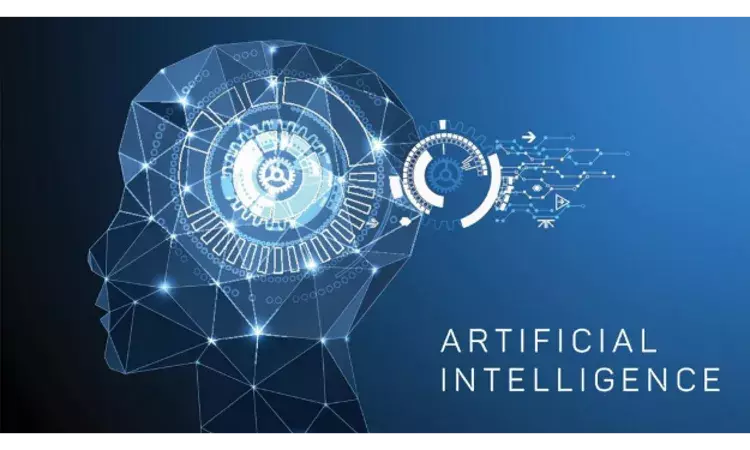- Home
- Medical news & Guidelines
- Anesthesiology
- Cardiology and CTVS
- Critical Care
- Dentistry
- Dermatology
- Diabetes and Endocrinology
- ENT
- Gastroenterology
- Medicine
- Nephrology
- Neurology
- Obstretics-Gynaecology
- Oncology
- Ophthalmology
- Orthopaedics
- Pediatrics-Neonatology
- Psychiatry
- Pulmonology
- Radiology
- Surgery
- Urology
- Laboratory Medicine
- Diet
- Nursing
- Paramedical
- Physiotherapy
- Health news
- Fact Check
- Bone Health Fact Check
- Brain Health Fact Check
- Cancer Related Fact Check
- Child Care Fact Check
- Dental and oral health fact check
- Diabetes and metabolic health fact check
- Diet and Nutrition Fact Check
- Eye and ENT Care Fact Check
- Fitness fact check
- Gut health fact check
- Heart health fact check
- Kidney health fact check
- Medical education fact check
- Men's health fact check
- Respiratory fact check
- Skin and hair care fact check
- Vaccine and Immunization fact check
- Women's health fact check
- AYUSH
- State News
- Andaman and Nicobar Islands
- Andhra Pradesh
- Arunachal Pradesh
- Assam
- Bihar
- Chandigarh
- Chattisgarh
- Dadra and Nagar Haveli
- Daman and Diu
- Delhi
- Goa
- Gujarat
- Haryana
- Himachal Pradesh
- Jammu & Kashmir
- Jharkhand
- Karnataka
- Kerala
- Ladakh
- Lakshadweep
- Madhya Pradesh
- Maharashtra
- Manipur
- Meghalaya
- Mizoram
- Nagaland
- Odisha
- Puducherry
- Punjab
- Rajasthan
- Sikkim
- Tamil Nadu
- Telangana
- Tripura
- Uttar Pradesh
- Uttrakhand
- West Bengal
- Medical Education
- Industry
Artificial Intelligence may improve management of sleep disorders: AASM

US: The potential use of Artificial Intelligence in the field of sleep medicine, resulting in advance diagnosis and treatment is given by a position statement from the American Academy of Sleep Medicine.
According to the statement, the electrophysiological data collected during polysomnography -- the most comprehensive type of sleep study -- is well-positioned for enhanced analysis through AI and machine-assisted learning.
"When we typically think of AI in sleep medicine, the obvious use case is for the scoring of sleep and associated events," said lead author and committee Chair Dr. Cathy Goldstein, associate professor of sleep medicine and neurology at the University of Michigan. "This would streamline the processes of sleep laboratories and free up sleep technologist time for direct patient care."
The use of AI can result in more accurate diagnoses, prediction of disease and treatment prognosis, characterization of disease subtypes, precision in sleep scoring, and optimization and personalization of sleep treatments. Goldstein noted that AI could be used to automate sleep scoring while identifying additional insights from sleep data.
"AI could allow us to derive more meaningful information from sleep studies, given that our current summary metrics, for example, the apnea-hypopnea index, aren't predictive of the health and quality of life outcomes that are important to patients," she said. "Additionally, AI might help us understand mechanisms underlying obstructive sleep apnea, so we can select the right treatment for the right patient at the right time, as opposed to one-size-fits-all or trial and error approaches."
Integration of AI into the sleep medicine practice include transparency and disclosure, testing on novel data, and laboratory integration.
"AI tools hold great promise for medicine in general, but there has also been a great deal of hype, exaggerated claims and misinformation," explained Goldstein. "We want to interface with industry in a way that will foster safe and efficacious use of AI software to benefit our patients. These tools can only benefit patients if used with careful oversight," she added.
The position statement, and a detailed companion paper on the implications of AI in sleep medicine, are available on the Journal of Clinical Sleep Medicine website.
For more information on sleep disorders and treatment, do visit http://sleepeducation.org/
MBBS
Dr K B AARTHI-has completed MBBS from SRM UNIVERSITY TAMIL NADU,Her interest is in the field of Pediatrics and Anaesthesia, also passionate in doing research and publishing articles.She joined Medical Dialogues in 2020 and publishes health news and medical updates. Email: editorial@medicaldialogues.in. Contact no. 011-43720751,9786713226
Dr Kamal Kant Kohli-MBBS, DTCD- a chest specialist with more than 30 years of practice and a flair for writing clinical articles, Dr Kamal Kant Kohli joined Medical Dialogues as a Chief Editor of Medical News. Besides writing articles, as an editor, he proofreads and verifies all the medical content published on Medical Dialogues including those coming from journals, studies,medical conferences,guidelines etc. Email: drkohli@medicaldialogues.in. Contact no. 011-43720751


